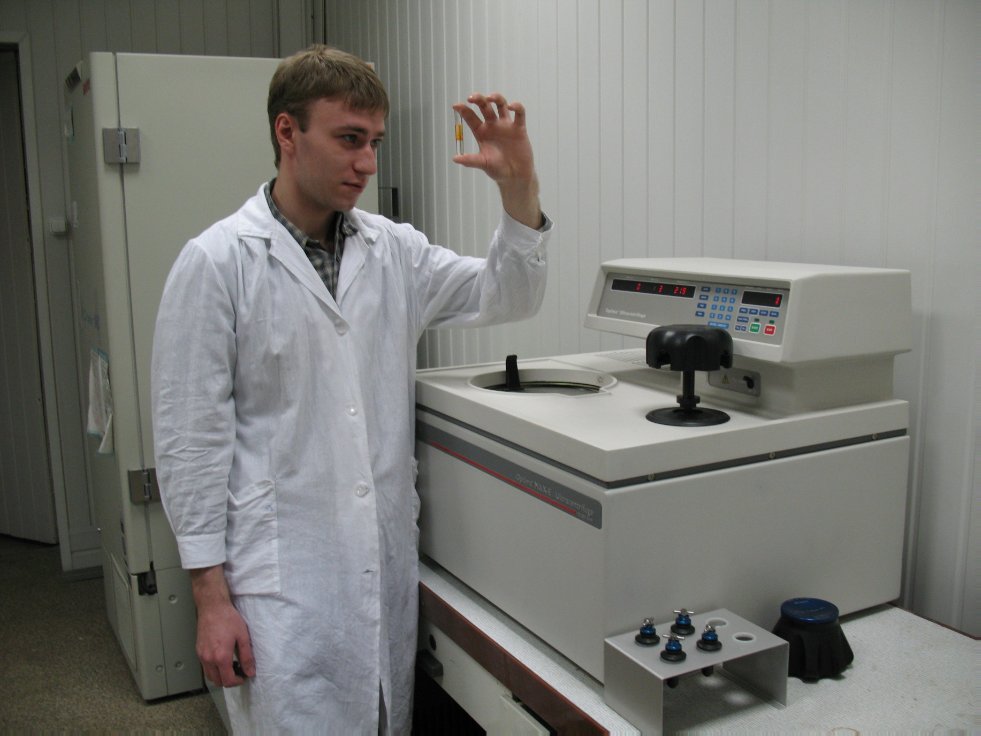
The scientific research is carried out in the fields of population, cell, biochemical, and molecular plant biology in the following directions:
1. Physiological, biochemical, molecular and genetic basis of plant resistance
Head Prof. Olga Timofeeva, Yuliya Nevmerzhitskaya.
The group studies the functional role of cell wall proteins in forming plant resistance to abiotic and biotic environment factors (heavy metals, low temperatures, drought, phytopathogens); biological activity and molecular mechanisms of plant growth regulators of diterpene origin.
2. Molecular genetic mechanisms of plant resistance to droughts
Head L. Khokhlova
In cooperation with foreign partners, this group focuses on detecting stress proteins' gene expressions in plant varieties of spring wheat differing in drought tolerance. Complex studies allow unraveling physiological aspects of drought's effect on plants with respect to molecular genetic modifications.
3. Molecular mechanisms of interaction between Higher and Lower plants and the development of integrated supraorganism systems
Head - Senior Lecturer V. Gorshkov
Research is focused on identifying special aspects of sensor-regulator system functioning in plants, characteristics of structural polymers, gene expressions and cloning, analysis of transcriptomes using high-throughput next generation sequencing.
4. Molecular mechanisms of plant gene expression regulation.
Head - Prof. Y. Gogolev
Studies cover molecular mechanisms of plant gene expression regulation at transcriptional and post-transcriptional levels, including noncoding RNA and riboswitches. We conduct interrelation analysis between gene topologies and aspects of their expression regulation. We assess the contribution of convergent transcription of overlapping genes on their gene regulation.
5. Stress in plants at physiological, biochemical and molecular levels.
Head - Prof. F. Minibaeva
The laboratory studies oxidative processes in Higher vascular plants, moss, and lichen under abiotic stressors. Special attention is paid to membrane lipids - sterines and genes of their biosynthesis, degradation of cell components withing the cell i.e. autophagy.
6. Physiological basis of plant adaptation
Head - V. Vorobyeva
This group dedicates its research to paradoxical effects and hormesis (stimulating effect of low-dose stressors causing toxic effect when in high concentrations) in plants reacting to anthropogenic and abiotic stressors
7. Light signal transduction in plants adapting to the adverse environment.
Head - Senior Lecturer T. Yakushenkova
We study the physiological role of main photoreceptor proteins in creating adaptive capability in plants under poor environment.
- molecular biological and morphological and systematic aspects of plant growth and reproduction
1) Physiology and genetic of cultured plant cells
Head - N.I. Rumyantseva
The group studies mechanisms of the growth and morphogenesis of cultured plant cells. Current projects: Secretion and its participation in differentiation and adaptation to plant cell stress in vitro. Histology ad ultrastructure of embryogenetic crops, special aspects of organogenesis and somatic embryogenesis. Analysis modes development, preparation, and modification of biologically active phenolic compounds of buckwheat cultured cells.
2. Ecology of vegetal-active plants. The structure of forest and meadow plant communities.
Head - Prof. E. L. Lyubarsky.
We study the dynamics and structure of vegetal-active plant populations within forest and meadow plant formations, the ecological anatomy of plants. In addition, we cover the questions of conservations and rational nature management.
3. Composition and structure of medicinal and rare plant coenopopulations as structural elements of vegetation cover.
Head - N. B. Prokhorenko.
Research in this area of population biology includes studies of natural plant populations, i.e. population size, density, spatial layout, proportions of elements with various properties in populations, monitoring, and detecting coenobitic growth conditions. Obtained results are used to derive recommendations for conservation and population size control.
4. Phytopathology and plant protection.
Head - G. V. Demina
The research is dedicated to different aspects of disease progression in cultivated and ornamental plants, biology and ecology of infectious agents, methods and practices of plant disease management
5. Algaeology and hydroniology
Head - L.Y. Haliullina
The research is focused on biology, ecology and systematics of algae, structural organization of algae communities in water bodies. We study algae as indicator organisms for water bioanalysis, check trophic status and bioproductivity of water bodies as well as monitor and forecast water ecosystem future states.
6. Algaeology and lichenology. Medicinal plant and plant population biology.
Head - G.I. Idrisova.
Structure and dynamics of algae flora in water ecosystems, analysis of lichen biota in nature and reserved and urbanized territories. Assessment of optimum dates for medicinal materials gathering depending on the dynamics of pharmacoactive substances storage. New locations of medicinal plants and their resource estimation. Special aspects of the life cycle of bulbous plants.
7. Plant reproductive morphology and biology.
Head - Senior Lecturer L.R. Kadyrova
The research covers the variability of flower formations, embryologic peculiarities and seed productivity of Fagopyrum Mill. Together with researchers from Tatar Research Institute of Agriculture we develop new high productivity varieties of common buckwheat with improved grain and seed characteristics adapted for climatic conditions of Middle Volga region.
8. Mushroom biodiversity
Head – Y. Potapov.
In our studies, we focus on biodiversity, systematics, anatomy, morphology and ecology of macromycete. Special attention is given to macromycete conservation and Bioindication.
- Biology and biochemistry of plant resources (medicinal, food, essential-oil materials)
1. Tissue and cell culture of medicinal plants
Head – Senior Lecturer L.Z. Khusnetdinova
Tissue and cell culture of medicinal plants are a new source of plant raw materials, applied aspects of in vitro plant culturing and search for productive sources of second metabolism products and factors influencing their deposition.
2. Physiology of agricultural crops: Solanum tuberosum L. case study
Head – A.A. Mostyakova
We study the effects of nutrient status and growth regulators on photosynthetic activity of potato varieties, disease development, tuber biochemical characterization, plant food elements removed with yield.